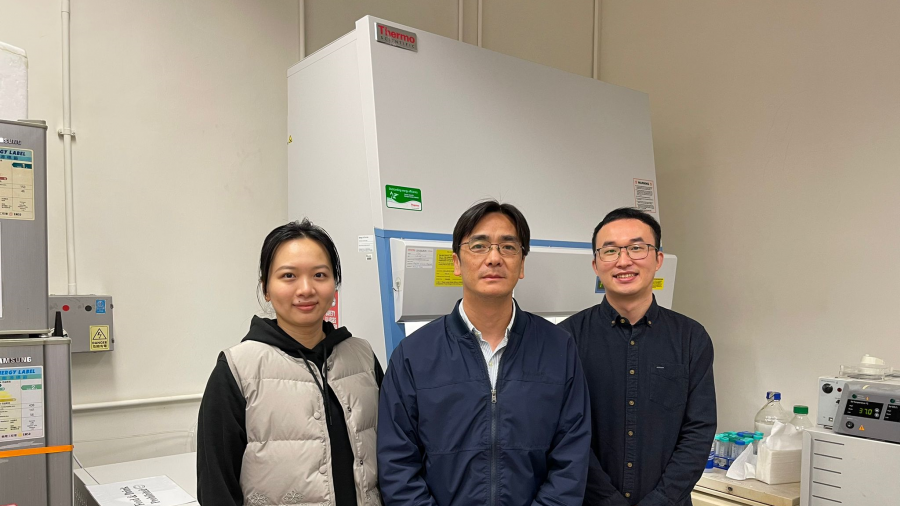
|
Getting your Trinity Audio player ready...
|
In a groundbreaking exploration at the intersection of technology and biology, Professor Yuan Lin and his research team from the Department of Mechanical Engineering at the University of Hong Kong (HKU) have achieved a significant breakthrough in unravelling the intricate mechanisms behind cellular and tissue plasticity.

Published in the Proceedings of the National Academy of Sciences (PNAS), their study, titled “A Mechanism-Based Theory of Cellular and Tissue Plasticity,” sheds light on the development of plastic strain in individual cells and its propagation within tissues, offering a novel perspective with potential applications in regenerative medicine.
Morphogenesis, the process through which tissues, organs, and organisms acquire complex three-dimensional structures, involves coordinated cellular deformations. Notably, these deformations are often irreversible, impacting crucial biological processes such as organ formation and embryogenesis. Professor Lin emphasises the importance of understanding the biophysical mechanisms driving cellular and tissue plasticity, highlighting its implications for innovative strategies in regenerative medicine.
In collaboration with researchers from Nanyang Technological University of Singapore, Professor Lin’s team introduced a groundbreaking multi-scale theory, a pioneering approach in the field. This theory unveils that in response to optical or mechanical stimuli, myosin contraction and thermal fluctuation-assisted formation of endocytic vesicles play a pivotal role in the permanent shortening of cell junctions.
This plastic constriction, in turn, stretches neighbouring cells, triggering active contraction through mechanochemical feedbacks and resulting in irreversible deformation, ultimately leading to the propagation of plastic deformation waves within the tissue.
The theoretical framework predicts the formation of endocytic vesicles with a size range of 1-2 µm. Importantly, the study suggests that a greater irreversible shortening of cell junctions can be achieved by splitting a prolonged stimulation into multiple shorter ones.
The plastic constriction wave, as predicted by the theory, propagates at a constant speed within the cell monolayer, aligning quantitatively with experimental observations. This theoretical foundation provides a deeper understanding of the underlying processes at play during cellular and tissue plasticity, offering potential avenues for technological interventions.
From a technological standpoint, the implications are profound. Understanding the mechanisms of cellular and tissue plasticity opens new doors for designing innovative strategies in regenerative medicine. By leveraging the insights gained from this research, scientists and engineers could develop targeted technologies that harness the plasticity of cells for therapeutic purposes. This could revolutionise approaches to organ formation and embryogenesis, offering unprecedented control over these processes.
Furthermore, the study’s focus on myosin contraction and thermal fluctuation-assisted formation of endocytic vesicles provides a technological roadmap for manipulating cellular behaviours. This knowledge could inspire the development of advanced technologies capable of precisely modulating cellular responses to optical or mechanical stimuli. The potential applications extend to the design of medical devices or interventions that leverage these mechanisms for therapeutic purposes, introducing a new era in precision medicine.
Professor Lin’s team, recognised as world leaders in the study of cell plasticity, has a track record of pioneering research in the field. Their earlier work demonstrated how cellular anisotropy and plasticity facilitate the proper elongation of developing embryos, showcasing the potential for technological interventions in developmental biology. Moreover, their research highlighted the correlation between the capability of tumour cells to undergo plastic deformations and their metastatic potential, offering insights that could inform the development of innovative cancer therapies.
Professor Yuan Lin’s research represents a major stride at the intersection of technology and biology. The multi-scale theory developed by his team not only advances our fundamental understanding of cellular and tissue plasticity but also opens up exciting possibilities for technological interventions in regenerative medicine and beyond.
As we delve deeper into the mechanisms governing biological processes, the potential for transformative technologies that leverage these insights continues to grow, promising a future where the boundaries between biology and technology blur for the betterment of human health and well-being.
















